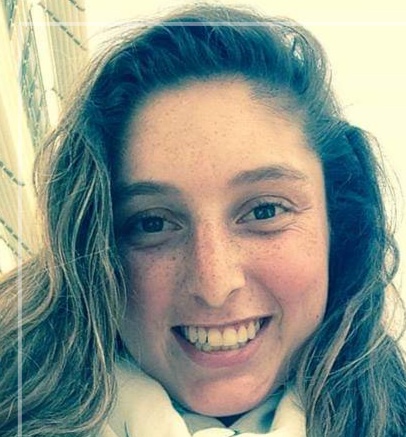Photo: Brent Smith/Wikimedia Commons

In a world full of instability, where everything feels uncertain, we should work together to build up one another. In difficult times like these, we should rally behind principles we know to be universal truths: equality, peace and love for our fellow man. Instead, we see time and time again that nefarious student groups like the terror-supporting Students for Justice in Palestine (SJP) do not use their voice as a tool to better society, but as one of anti-Semitism and incitement towards Jewish students.
In light of the recent anti-Zionist art exhibit co-hosted by Butler University’s SJP chapter and the university’s Student Government Association’s Diversity Equity and Inclusion Board in early October—and in conjunction with a now failed resolution to denounce anti-Semitism in all its forms, including BDS—SJP members on the Indiana campus have drafted an open letter trying to distance themselves from anti-Semitism. Additionally, they penned a letter to the editor in the university’s newspaper defending their actions and disparaging Zionism in yet another attempt to disguise their anti-Jewish bias. In the letter, they stress that the International Holocaust Remembrance Alliance’s (IHRA) definition of anti-Semitism, which was incorporated into the failed resolution, is meant to stifle the voices of Palestinian students by prohibiting criticism of Israel. However, the IHRA definition explicitly allows criticism of Israeli policy and simply condemns criticisms unique to Israel, as well as the denial of the Jewish right to self-determination.
Although Butler SJP maintains a facade of standing against anti-Semitism, a quick glance at their Facebook page demonstrates the opposite. Its profile picture features the State of Israel covered with a keffiyeh, erasing not just the West Bank and Gaza, but the entire internationally recognized State of Israel. Alongside the keffiyeh-covered Israel is a dove carrying an olive branch. This one image makes it glaringly obvious that the dove carrying an olive branch—a universal sign of peace—is just an empty promise. What SJP truly stands for is a one-state solution to the Israeli-Palestinian conflict and that one state is Palestine, leaving no room for the Jewish people in their ancestral homeland. That is anti-Semitism, whether SJP claims they “stand against” it or not.
SJP argues that BDS against Israel mirrors peaceful protests used against apartheid, a horrible chapter of South African history when black and white citizens were unequal under the law. Black citizens were not given equal opportunities in the workforce or education, and fraternization between the two races was a crime. Conversely, Israel is home to many prosperous communities. The Muslim community is Israel’s largest minority group, making up 21 percent of the entire population. Christians and Druze each comprise 2 percent of the population. Members of these minority groups share equal rights with all other citizens, are integrated into Israeli society, and serve admirably in the military and judiciary. In fact, during Israel’s most recent elections, the Joint Arab List became the third-largest party in the Israeli parliament. While black citizens were not allowed on the same bus as white citizens in apartheid South Africa, in Israel, minority judges and politicians are partners in leading the county.
Later in the letter, Butler SJP shifts focus to Palestinians living in Judea and Samaria, and the Gaza Strip, alluding to these areas being run under Israeli oppression. Indeed, Palestinians living in these territories are oppressed, but that comes as a product of their own elected leadership. In 2006, one year after Israel forcefully removed every Jewish citizen from Gaza in a bid for peace, its residents elected the Hamas terror group to lead them. Since then, Hamas has funneled time, manpower and humanitarian aid into building terror tunnels at the expense of new hospitals and other essentials that would improve the lives of its people. Shifting to the West Bank, the Palestinian Authority, led by Mahmoud Abbas, not only funds terrorism but denies Palestinians authorization to receive medical treatment in Israel. In 2019, the P.A. declared it would not allow patients to receive medical treatment in Israel, denying treatment to roughly 20,000 Palestinians who were granted prior authorization by Israel.
No one can deny that the Palestinians in the West Bank and Gaza are truly living in poor conditions. Yet it’s important to draw attention to SJP’s fake interest in the plight of the Palestinians. SJP rarely, if ever, criticizes the Palestinian leadership for its numerous abuses, nor does it discuss how the Palestinians have rejected generous offers for statehood on multiple occasions, perhaps the only national independence movement in recent memory to do so. Instead, its members distort information to foster a narrative of good versus evil, in which Israel is the villain. Their mission is not one of liberation, freedom and equality, but rather one of anti-Semitism. If SJP truly wants to make a difference, it must shelve its cries for liberation from Israel and chant “free Palestine from Abbas, free Palestine from Hamas.”
Until then, Israel will quietly continue the work that SJP claims to be doing.
Originally published in jns.org.
Contributed by 2020-2021 Sapir College CAMERA Fellow Sara Goel.

